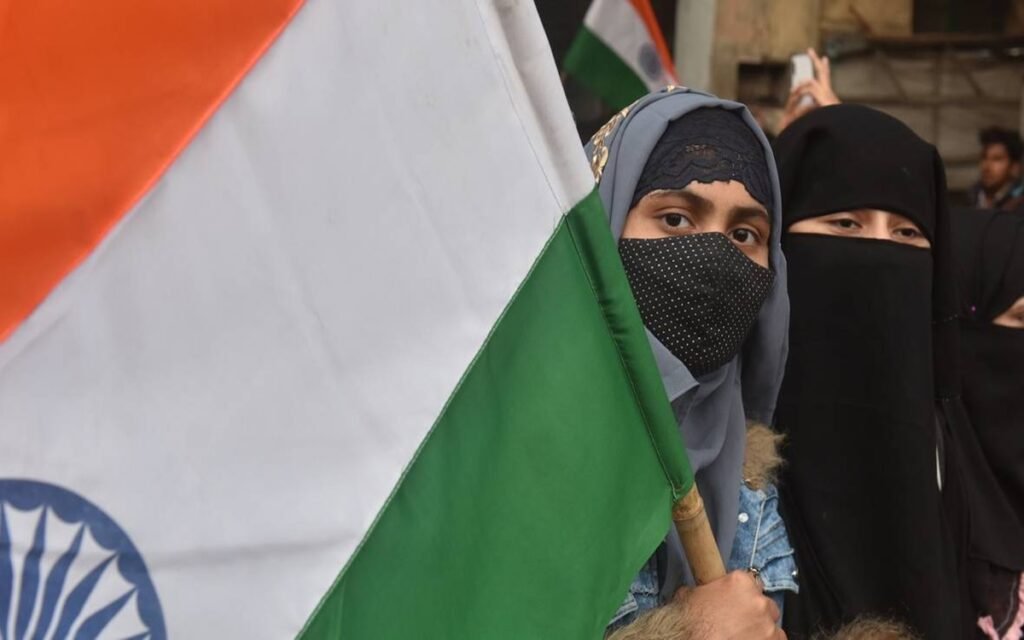Blasphemous remarks against Prophet Muhammad (pbuh) reflect the country’s declining moral condition, says JIH chief
Team Clarion
NEW DELHI — Jamaat-e-Islami Hind (JIH), a premier organisation of the country’s Muslims, has condemned the recent surge in targeted violence against Muslims and their places of worship, along with the sacrilegious remarks of some Hindutva elements against Prophet Muhammad (peace be upon him).
Addressing the monthly press meeting at the organisation’s headquarters in the national capital on Thursday, Jamaat chief Syed Sadatullah Husaini voiced grave concern over the alarming increase in targeted violence against Muslims and their places of worship. “There is a troubling pattern of Muslim places of worship being attacked or demolished. Authorities have carried out large-scale demolitions, including the destruction of mosques, dargahs, and a 500-year-old cemetery in Gir Somnath District, Gujarat. Despite claims to the contrary, there are ongoing concerns that these demolitions were illegal and conducted without proper notice. In Kanchanpur village of Bihar’s Sitamarhi District, extremists defaced a mosque’s wall with threatening and provocative messages, calling for its demolition and issuing dire warnings to the Muslim community.”
Dwelling at length on other key issues, the Jamaat chief called for the immediate restoration of Jammu and Kashmir’s statehood. Husaini emphasised that the recent peaceful elections in the region indicate stability, making it crucial to restore its statehood. “The way elections were conducted shows that the situation is peaceful, and there’s no justification to keep Jammu and Kashmir under central control. This goes against the federal and democratic spirit of the Constitution,” Husaini remarked.
Commenting on the election verdict in Haryana, he said, “Both the ruling party and the opposition must take responsibility. Although the BJP (Bharatiya Janata Party) won, the voting pattern reflects the people’s desire for governance, employment, and inclusive development, rejecting hate politics. The new government should align its policies with this message, and the opposition must introspect and unite.”
Husaini also raised concerns about the surge in hate speech, derogatory remarks against religious figures, and attacks on mosques and dargahs in various parts of India, particularly in Tripura and Gujarat. “These incidents represent a dangerous trend, and the silence of the authorities is deeply concerning. The illegal demolitions of religious sites, even in defiance of Supreme Court orders, show a blatant disregard for the law,” he added.
Husaini condemned blasphemous remarks against Prophet Muhammad (pbuh) in Uttar Pradesh’s Ghaziabad and Maharashtra, calling it a reflection of the country’s declining moral condition. “India has a rich tradition of respecting religious leaders, and it is alarming to see this respect being eroded.”
The Jamaat chief also criticised the proposed “One Nation, One Election” policy, warning that it undermines the federal structure of the Constitution. “Simultaneous elections would harm federalism, accountability, and voter behaviour, requiring significant constitutional amendments,” he said.
On the escalating conflict in the Middle East, Husaini expressed grave concern over the potential for war between Israel and Iran. “A war in the region would be disastrous for global peace. The UN and the international community must intervene to stop Israel’s aggression and impose sanctions,” he urged, calling for the UN Security Council to enforce a ceasefire and hold Israel accountable for its actions.
Jamaat Vice President Prof Salim Engineer and National Secretary Shafi Madani also addressed the press, sharing findings from a recent visit to Prabhas Patan in Gir Somnath District, where they investigated the illegal demolitions of religious sites. Prof Salim detailed the unlawful destruction of several shrines, a mosque, an Eidgah, and a cemetery, calling for the restoration of the sites and accountability for those responsible.
“This incident has deeply distressed not only the Muslim community in Prabhas Patan and Veraval but also Muslims nationwide and all citizens who stand for justice,” he stated.
On October 8, a JIH delegation visited Prabhas Patan to express solidarity with the affected Muslim community and offer support.
“Since the night of September 27, an atmosphere began to build in the village. The local community felt that the administration’s intentions towards them were not good, as a large number of bulldozers and heavy police presence had gathered,” Prof Salim said noting that around 10,000 residents of the locality feared a major operation was imminent.
The area, which includes graves dating back 800 to 500 years, saw widespread destruction. Reports indicate that nearly all structures were bulldozed, with only a small shrine and a minor graveyard left intact. Authorities allegedly covered the signs of demolition with dirt, and police camps were established in the vicinity.
Expressing utter surprise that the administration carried out all demolitions despite pending litigation in the high court, Prof. Salim pointed out. “It’s concerning that the demolition took place despite the case being sub-judice. The administration may have anticipated that the court would intervene, prompting them to act pre-emptively,” he said.
Locals suspect that the demolitions were part of a coordinated plan orchestrated during a meeting of the Somnath temple trust in Delhi on September 16, chaired by Prime Minister Narendra Modi, who is also the chairman of the trust. Prof. Salim criticised the characterisation of ancient shrines, mosques, and graveyards as encroachments on government land, calling it absurd. “This matter will be presented in court. The locals have assured us they possess the necessary documents, while the Somnath trust holds none,” he stated.

